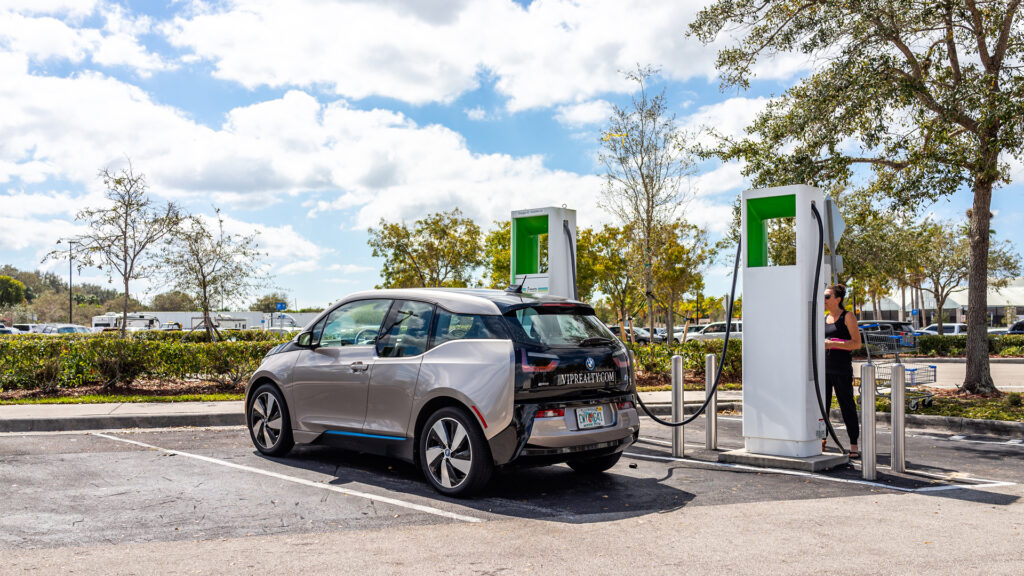By Steve Wilson, The Center Square
(The Center Square) – Florida’s increasing adoption of battery electric and hybrid vehicles could reduce annual gas tax revenues by $46.4 million to $78.3 million annually, meaning less money for transportation projects, a report says.
The report by the nonpartisan, nonprofit policy group Florida Taxwatch recommends that lawmakers initially proceed with a diversion of sales tax revenue to the state’s transportation trust fund and later design a tax structure that could apply higher registration fees to electric vehicles and hybrids and levy a tax on charging stations.
According to state data, the report says Florida had 255,000 electric vehicles and 57,000 hybrids, with registration of EVs growing by 2,097% from 2016 to 2023 and hybrids by 467%. During that same period, registration of gasoline powered cars increased by 15.8%.

The report multiplied the number of electric vehicles registered in the state in 2023 by the average miles traveled per Floridian (13,807 miles annually) to arrive at their calculations on the effects to the state’s transportation trust fund.
Lawmakers are already looking to make up for the loss of gasoline tax revenue.
Senate bills 462 and 1662, and House bills 567 and 1397 would distribute differing amounts from the state’s 6% sales tax revenue to the state’s transportation trust fund. SB 462 and HB 567 would reallocate $50 million annually, while SB 1662 and HB 1397 would distribute $75 million.
The authors also say that an interstate vehicle miles traveled tax, while possible, requires cooperation with other states since Florida has a particularly transient population of tourists, students, “snowbirds” who spend winters in the state from northern U.S. states and Canada, and business travelers.
The report says telematic software, already built into most modern cars, is less susceptible to tampering, but brings privacy concerns for drivers.
One way a vehicle miles traveled tax could work is like Hawaii’s program, which is an alternative to the state’s electric vehicle registration tax. There drivers can pay $8 per 1,000 miles, capped at $50 or pay a $50 flat fee. The program will be required for all light-duty vehicles in the state by 2033, requiring the submission of odometer data.
Utah’s pilot program assesses participants at 1.11 cents per mile from a prepaid wallet up to a limit of $143.25 and stops at 13,000 miles annually.
Florida is the only state in the Southeast without either an additional registration fee for electric vehicles and hybrids and/or a charging station tax. Georgia has both an additional registration fee and a tax on charging stations, while Alabama, Louisiana, Mississippi, North Carolina, South Carolina and Tennessee charge only registration fees on these vehicles.
According to the report, the Florida Department of Transportation, in fiscal 2024-25, received $14 billion for its work program that funded 140 miles of new highway lanes, 3,128 miles of lane resurfacing and 15 bridge replacements.
This piece was originally published at https://www.thecentersquare.com/florida/article_9a253fcd-0e5a-4356-ae27-e858a8fd943f.html. Banner photo: A Tesla charging in Homestead (iStock image).
Sign up for The Invading Sea newsletter by visiting here. To support The Invading Sea, click here to make a donation. If you are interested in submitting an opinion piece to The Invading Sea, email Editor Nathan Crabbe at ncrabbe@fau.edu.



